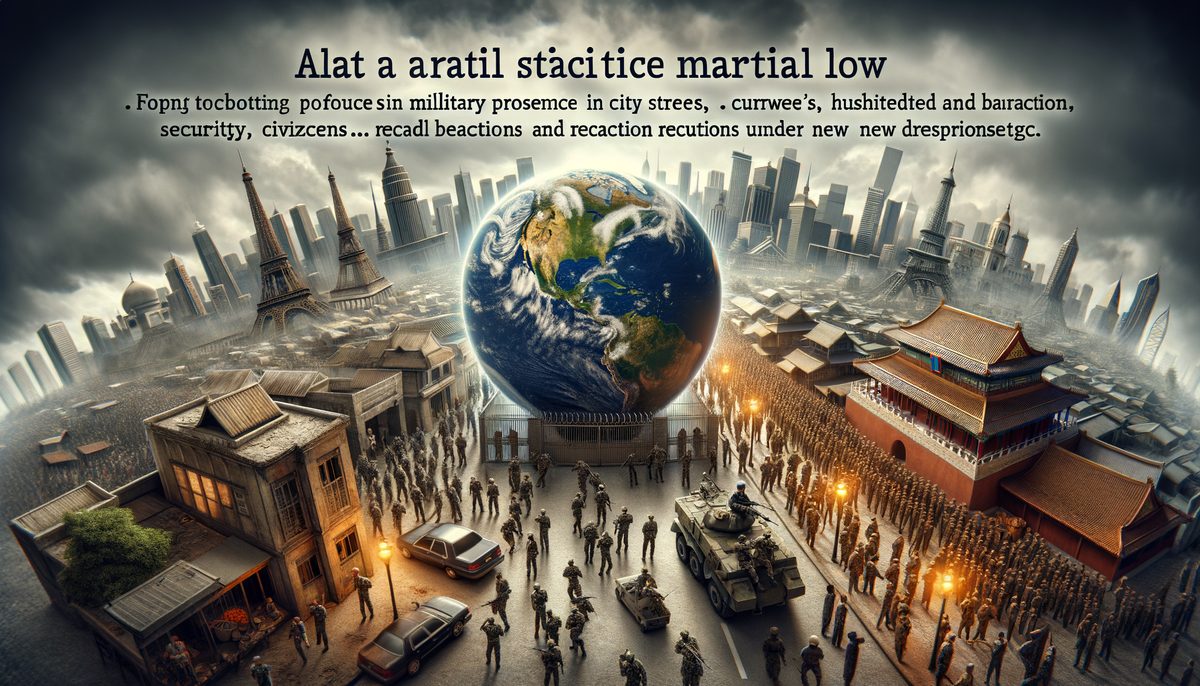Understanding Martial Law: A Timely Examination Amidst Recent Developments
A comprehensive look at martial law amidst recent global developments, focusing on strategic implications.

Understanding Martial Law: A Timely Examination Amidst Recent Developments
Martial Law
In light of the recent political developments surrounding martial law, particularly highlighted by the recent events in South Korea, it is critical to delve into what martial law entails, its implications, and how it relates to our expertise in consultancy for legal and emergency preparedness sectors. Recent reports, including those from AP News, Reuters, and Bloomberg, provide a basis for understanding the current scenario.
Martial Law: Definition and Overview
Martial law represents a significant shift in the control dynamics of a state, where military authorities take command, supplanting civilian governments. This is often instituted in response to emergencies, such as wars, severe civil disturbances, or natural calamities. Historically, the concept dates back to at least the 17th century, often justified under the doctrine of necessity.
Implementation and Legal Basis
The intricacies of martial law implementation reveal a pattern of being invoked during dire circumstances such as war, rebellion, or catastrophic events. While some countries lack explicit constitutional mechanisms for this transition, the necessity doctrine often underpins these decisions, calling into question the delicate balance between security and civil liberties.
Recent Context in South Korea
In South Korea, the discourse around martial law has gained traction with political shifts potentially leading to its invocation. As reported by Reuters and Bloomberg, these developments underscore the strategic use of martial law as a political maneuver. These events prompt an imperative reassessment of martial law's role and its potential to reconfigure national security strategies.
Global Examples and Consequences
Analyzing historical precedents, such as the U.S. Civil War and wartime Hawaii, reveals martial law as a multifaceted tool, occasionally leading to public backlash due to suspended civil rights. Pakistan's frequent reliance on military rule exemplifies the lasting impacts and controversies surrounding martial law declarations.
Practical Takeaways for Professionals
For practitioners in the field of law and governance, understanding martial law's parameters is crucial. Pre-emptive planning and establishing robust legal frameworks can mitigate the adverse effects on civil infrastructure. Our consultancy services aim to guide organizations and governments in aligning their emergency responses with both legal standards and ethical practices. Our expertise ensures that clients can navigate these turbulent circumstances effectively.
We encourage our readers to explore further insights into martial law and how these complex dynamics could impact future governance. For detailed discussions and consultancy, contact us to gain tailored advice and strategies.
© 2025 Newsomix.com. All rights reserved.




